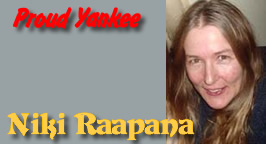SMART
GROWTH CENTRALIZING WEALTH IN THE NEW EARTH AGE
PART 2 of 2
By Niki Raapana
December 28, 2011
NewsWithViews.com
In the 1950s, small groups of concerned, caring people began working on a series of contracts and trade negotiations that led to the establishment of the WTO and the European Union. A key component of the free trade agreements became acknowledgement of the supremacy of the communitarian law.
Communitarianism is the perfect merger of Communism/socialism with its former opposite Capitalism/free trade. In a combined, more moral communitarian system, the term "land management" covers all aspects of life. It blends social issues with economic issues and environmental issues under one central regulatory principle.
Under the new global communitarian land management system, local individuals evolve into subjects who are regulated by a consortium of organizations, think tanks, investors, speculators, financiers, scientists, experts, and global advisors.
Today there exsists a large body of communitarian environmental case law at the EU Court of Justice. The acquis communautaire affirms the ability of the communitarians to require national structural changes and impose regulations that prohibit locally initiated local production, trade, and development.
"The acquis communautaire: the ability to assume the rights and obligations of the EU system, ie all the legislation adopted and revised throughout the European construction (the founding Treaties of Rome as revised by the Single European Act, the treaties of Maastricht, Amsterdam and Nice and all regulations and directives adopted by the Council of the Union and all the judgments of the Court of Justice of European Communities)"
By the 1970s, there began a not-so-public debate over what the New York Supreme Court called the "largely antiquated notion" of local control over local land and economic growth. After 60 years of the Fabians slow plodding through U.S. institutions, Morgenthou's idea of controlling local land use and economic development led to a huge but very quiet "revolution."
"… a revolution to wrest land use control from local governments was begun. It was one fueled by the understanding that local control of land use creates serious inefficiencies and inequities.
A report entitled "The Quiet Revolution," prepared for the Council of Environmental Quality in 1971, contained a powerful statement of the problems caused by the delegation of land use control to towns, villages, boroughs, cities, and townships:
"This country is in the midst of a revolution in the way we regulate the use of our land. . . . The ancient regime being overthrown is the feudal system under which the entire pattern of land development has been controlled by thousands of individual local governments, each seeking to maximize its tax base and minimize its social problems, and caring less what happens to all the other." [Link]
By 1981, the architects of the golden future were still stymied by state legislatures who refused to cede their legitimate authority over to vague, new principles. American states were chastised for having delegated too much authority to locals, in spite of the fact that the American system was not designed as a top-down system of granted priveledges. The power in the United States was held by the individuals; the state and federal governments' only legal purpose was to protect and maintain the property rights of the individuals they were elected to represent.
"After analyzing recent state planning and smart growth legislation, a preeminent practitioner and scholar concludes that one of the major problems in fighting sprawl today is "the states' failure to reclaim some of their authority delegated early on to localities in the land use field. . . ." Quiet Revolution for Whom? Richard A. Walker and Michael K. Heiman, Annals of the Association of American Geographers Vol. 71, No. 1 (Mar., 1981)
A decade later Growing Smart provided a new framework for model local legislation that would further the "federal/outsider control over local land" ideology.
"The American Planning Association launched Growing Smart in 1994. Its long-term aim was to help states modernize existing statutes and change managers. There are three phases which result in two major products.
Phase I focuses on state and regional planning and the relationships occurring between these entities. Phase II will result in model local planning legislation.
Phase III provides communities with model implementation tools to manage change. The two major publications include a Legislation Guidebook and a set of working papers titled, Modernizing State Planning Statutes: The Growing Smart Working Papers."
The American Planning Association, leaders in Smart Growth, can trace their organization directly back to Morgenthou's first meeting.
"AIP was incorporated in 1917 (as the American City Planning Institute, renamed the American Institute of Planners in 1939), and ASPO in 1934, we actually trace our roots further back to 1909 and the first National Conference on City Planning in Washington, D.C. From that and subsequent conferences, the organized planning movement emerged, first through our two predecessors and, since 1978, through APA. APA's 2010 National Planning Conference was the 102nd such event."
One goal of the planners is to modify U.S. law, specifically in ways that will give agencies the power to overrule constitutional limitations on their power. Outdated laws that protect local property rights and local control over local resources must be modernized to fit Morgenthou and Marsh's centralized governance model.
"APA conducts extensive research on planning topics, including those sponsored by agencies and other associations. A current project, Growing Smart, includes a legislative guidebook to help decision makers update state statutes to fit modern uses. Other research projects include: the Land-Based Classification Standards project, which will update standardized land-use coding, sponsored by the Federal Highway Administration; and a study on Regional Approaches to Affordable Housing."
Smart Growth was also used as a marketing strategy for introducing UN Local Agenda 21 plans, without emphasizing the international aspects of the plans.
"There are many goals of Smarth Growth and they include: making the community more competitive for new businesses, providing alternative places to shop, work, and play, creating a better "Sense of Place," providing jobs for residents, increasing property values, improving quality of life, expanding the tax base, preserving open space, controlling growth, and improving safety." wikipedia.com
Today Morgenthou and Marsh's 1909 plan is codified in Federal and State regulations (we are supposed to believe it all just emerged in the last 10-20 years!).
"The concept of "Smart Growth" has emerged in the last 1020 years driven by "new guard" urban planners, innovative architects, visionary developers, community activists, and historic preservationists. Smart Growth is a term which has become codified in Federal and State regulations. It has various flavors, but the basic principles are generally similar - being variations of the same concept with different emphasis, including: Smart Growth, New Urbanism, New Community Design, Sustainable Development, Traditional Neighborhood Development, Resource Stewardship, Land Preservation, Preventing urban sprawl, Conserving Open Space, Creating Sense of Place, Development Best Practices, Preservation Development, Triple Bottom Line (TBL) Accounting - People, Planet, Profit, The Three Pillars - Human, Natural, and Created Capital." wikipedia.com
There's been very little public resistance to the Quiet Revolution because, like every other Fabian inspired program for change, it wasn't advertised on TV.
"One needs to distinguish between Smart Growth "principles" and Smart Growth "regulations" - the former are concepts and the latter their implmentation - that is, how federal, state, and municipal governments choose to fulfill Smart Growth principles. Many critics of Smart Growth point to deficiences in Smart Growth regulations - it is hard to criticize principles that promote "best practices," "stewardship," and "quality of life." wikipedia.com
Best practices for quality sustainability isn't really the core issue, and vague, undefinable terms aren't principles. The core issue is whether the regulatory system established by the communitarians supercedes the authority of the U.S. and every state constitution. If the only purpose for government in the United States is to protect and defend individual rights, with specific limits on federal power clearly stated in the U.S. Bill of Rights, then what legitimate place does the central communitarian regulatory system hold in this country?
The real problem we have with Smart Growth rests in its core principle of communitarianism. Communitarianism is incompatible with the constitutional system established in the United States. It's very existence, no matter how old, catchy, successful or pervasive the ideology becomes, is an act of treason.
The communitarians are very good at coming up with pithy little sayings to further their goals. In my generation it was, "A woman without a man is like a fish without a bicycle." In my great-grandparents' time it was:
"A City without a plan is like a ship without a rudder." Fabian Socialist Benjamin C. Marsh, 1909, An Introduction to City Planning: Democracy's Challenge to the American City
As the world approaches the second decade of the 21st century, anything Green, sustainable, equitable, or related to Climate Change or Global Poverty is poised to make a killing off the next round at Rio. How much more life blood Americans will be asked to sacrifice to the communitarian demigods remains to be seen, but if the Bolivian's proposal to grant the Mother Earth Goddess full Human Rights is adopted and agreed upon at the 2012 Rio+20 Conference, we will become witnesses and/or victims to the most absurd regulations the world has ever seen.
Maybe the word smart, when used by a communitarian, means that only a small group of their specially trained elite change agents are fit to rule, and putting the capitalized word Smart in front of a program like Smart Growth or Smart Grid simply represents a Smart Move by the enemies of legitimate freedom.
Regardless of what Fabians and capitalists tell us, common people working their private property are not stupid locals who can't be allowed to manage their own lives. This whole colonialist issue was decided here in 1776. The American revolution was fought by people who challenged the aristocratic governance model with a uniquely American Smartass idea. Some Americans held firm to the law that common men are born free, that freedom is a natural state, that all people are endowed with certain rights that no mortal man's regulations can ever take away.
| Subscribe to the NewsWithViews Daily News Alerts! |
Many smart, uneducated people like us refuse to worship the Smart gods. We all share an affliction known at Harvard as, "the healthy instincts of the plain man."
About ACL BOOKS
Niki Raapana and Nordica Friedrich have been studying, researching, and writing about the supra national world order since 1999. They started ACL BOOKS in 2005 with a simple introduction to Communitarianism and later printed a hardcopy edition of their original thesis, What is the Hegelian Dialectic? and The Historical Evolution of Communitarian Thinking. Political, religious, legal, and historical Communitarianism are introduced, as well as how deeply rooted it is in modern life. 2020 is a "brief" introduction to the plan and the journey taken to uncover it. The thesis is a logical rebuttal to the dialectical theory of forced social evolution. Combined, these books are a must read for anyone who wants to know more about why all the new plans, programs and regulatory agencies can claim the power to overrule constitutional law. Pre-orders for 2020: Our Common Destiny and The Anti Communitarian Manifesto, the Combined Edition can be purchased at the Anti Communitarian League website. Please allow up to 6 weeks for product delivery. Special thanks to Victor from NY, a NWVs reader whose recent generous donations made our December shine. Appreciation comes in all forms, and it's always darkest before the dawn. We may be destitute, defamed, disrespected and discounted, but we will never be dettered.
Click here for part -----> 1,










 Share This Article
Share This Article




